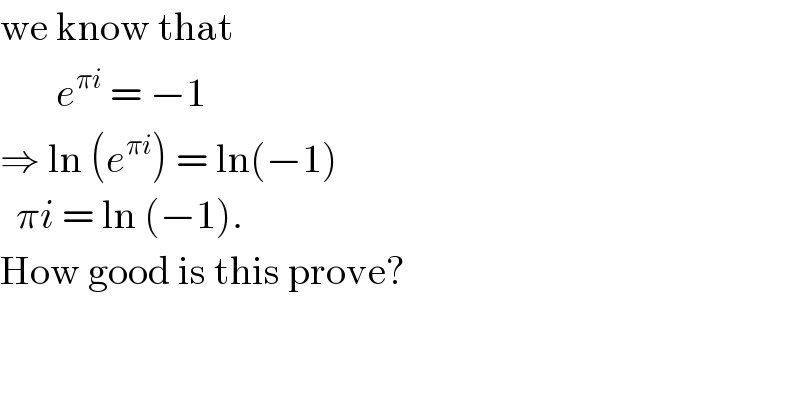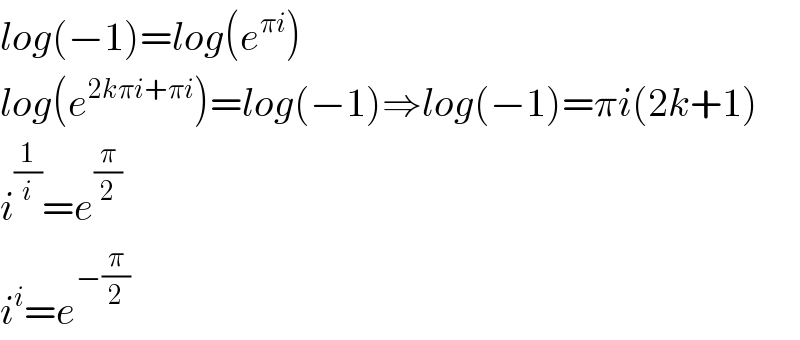
Question and Answers Forum
Question Number 114857 by Rio Michael last updated on 21/Sep/20

Commented by malwan last updated on 21/Sep/20

Commented by mr W last updated on 21/Sep/20

Commented by Rio Michael last updated on 21/Sep/20

Commented by MJS_new last updated on 21/Sep/20

Commented by Rio Michael last updated on 21/Sep/20

Commented by Dwaipayan Shikari last updated on 21/Sep/20

Commented by MJS_new last updated on 21/Sep/20

